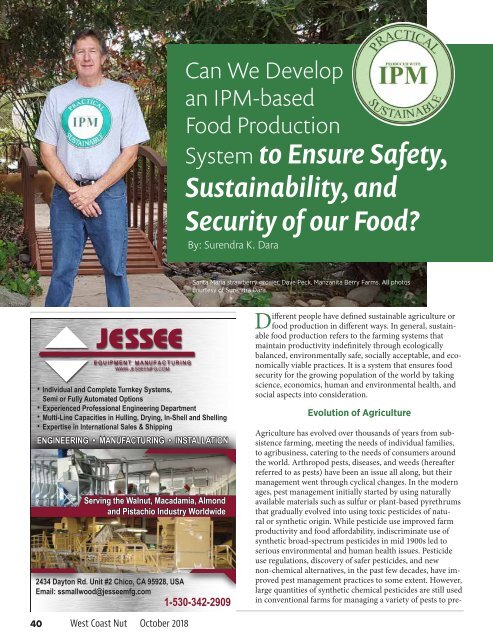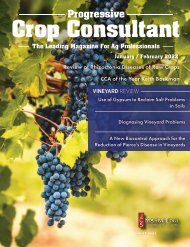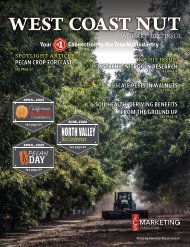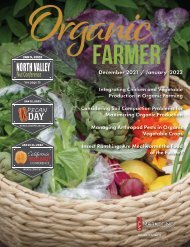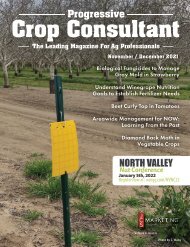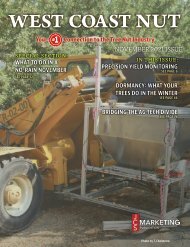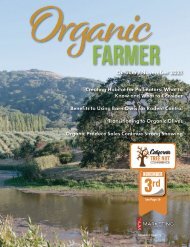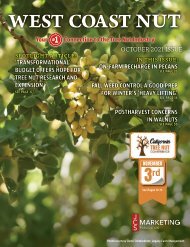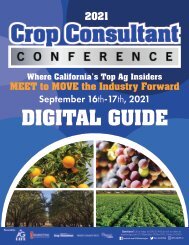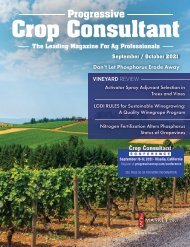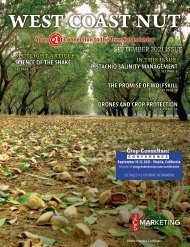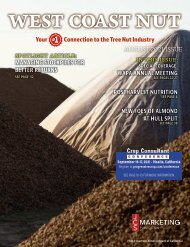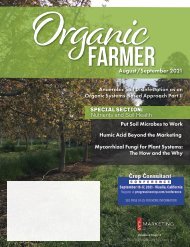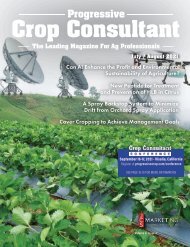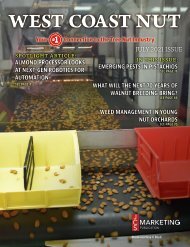You also want an ePaper? Increase the reach of your titles
YUMPU automatically turns print PDFs into web optimized ePapers that Google loves.
Can We Develop<br />
an IPM-based<br />
Food Production<br />
System to Ensure Safety,<br />
Sustainability, and<br />
Security of our Food?<br />
By: Surendra K. Dara<br />
Santa Maria strawberry grower, Dave Peck, Manzanita Berry Farms. All photos<br />
courtesy of Surendra Dara.<br />
• Individual and Complete Turnkey Systems,<br />
Semi or Fully Automated Options<br />
• Experienced Professional Engineering Department<br />
• Multi-Line Capacities in Hulling, Drying, In-Shell and Shelling<br />
• Expertise in International Sales & Shipping<br />
ENGINEERING • MANUFACTURING • INSTALLATION<br />
Serving the Walnut, Macadamia, Almond<br />
and Pistachio Industry Worldwide<br />
2434 Dayton Rd. Unit #2 Chico, CA 95928, USA<br />
Email: ssmallwood@jesseemfg.com<br />
1-530-342-2909<br />
Different people have defined sustainable agriculture or<br />
food production in different ways. In general, sustainable<br />
food production refers to the farming systems that<br />
maintain productivity indefinitely through ecologically<br />
balanced, environmentally safe, socially acceptable, and economically<br />
viable practices. It is a system that ensures food<br />
security for the growing population of the world by taking<br />
science, economics, human and environmental health, and<br />
social aspects into consideration.<br />
Evolution of Agriculture<br />
Agriculture has evolved over thousands of years from subsistence<br />
farming, meeting the needs of individual families,<br />
to agribusiness, catering to the needs of consumers around<br />
the world. Arthropod pests, diseases, and weeds (hereafter<br />
referred to as pests) have been an issue all along, but their<br />
management went through cyclical changes. In the modern<br />
ages, pest management initially started by using naturally<br />
available materials such as sulfur or plant-based pyrethrums<br />
that gradually evolved into using toxic pesticides of natural<br />
or synthetic origin. While pesticide use improved farm<br />
productivity and food affordability, indiscriminate use of<br />
synthetic broad-spectrum pesticides in mid 1900s led to<br />
serious environmental and human health issues. Pesticide<br />
use regulations, discovery of safer pesticides, and new<br />
non-chemical alternatives, in the past few decades, have improved<br />
pest management practices to some extent. However,<br />
large quantities of synthetic chemical pesticides are still used<br />
in conventional farms for managing a variety of pests to pre-<br />
40<br />
West Coast Nut October 2018


